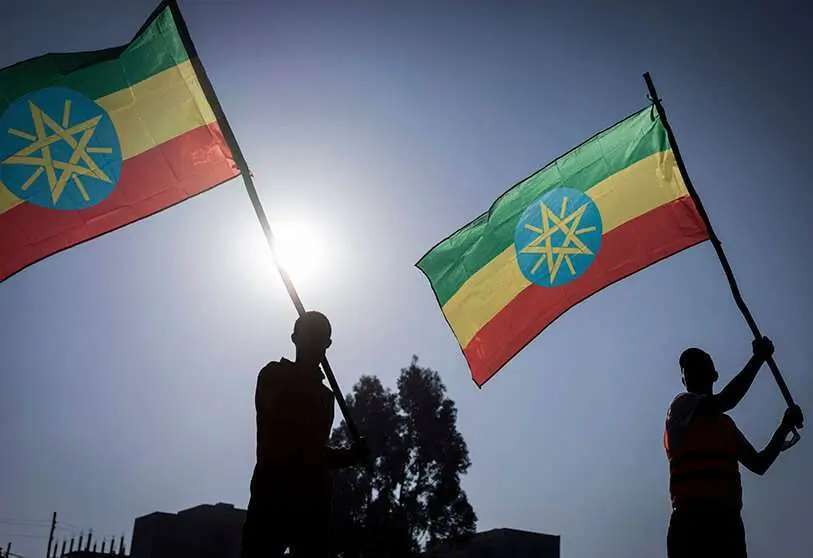Ethiopia releases several political opponents as it calls for "national reconciliation"

The Ethiopian government released last Friday several politicians detained in the country and assured that it would open a dialogue with its opponents, coinciding with the moment when Abiy Ahmed, the country's prime minister, called for "national reconciliation".
This is the most significant advance 14 months after the outbreak of the war in the northern region of Tigray, which has posed a great threat to the unity of the second most populated country in Africa.
It should be noted that among the released opponents were some leaders of the "Tigray People's Liberation Front".
According to the Government Communicators Office, "dialogue is the key to lasting peace (...) and mercy is one of the moral duties of the victor".

According to the list published by the state-owned Ethiopian Broadcasting Corporation, it includes two senior political leaders belonging to the Oromia region, the leader of the Oromo Federal Congress, Bekele Gerba, and the founder of Oroma Media Network, Jawar Mohamed.
The Oromia region is the settlement area of the largest ethnic group in Ethiopia, as well as the home of Abiy Ahmed's political advocacy.
In turn, several rebellions have taken place in the region, as well as serious human rights violations committed by the same security services.

Likewise, the Ethiopian Broadcasting Corporation reported on its official Twitter profile that among the released politicians were also the former president of Tigray, Abay Weldu, and the founder of the "Tigray People's Liberation Front", Sebhat Nega.
In addition, journalist Eskinder Nega, who is also leader of the opposition party Balderas for True Democracy, imprisoned for a year and a half in the maximum security prison of Kaliti in Addis Adeba, and accused of terrorism, has also been released.
Eskinder's release followed Abiy Ahmed's annual Ethiopian Christmas message, which takes place on January 7, assuring that the country needs "national reconciliation".

Antonio Guterres, secretary general of the United Nations (UN), welcomed the release of the various detainees in prison in Ethiopia, including members of the opposition.
"I call on the parties to build on this important confidence-building step by agreeing to a cessation of hostilities and a permanent ceasefire, as well as the launch of a comprehensive and credible process of dialogue and national reconciliation," Guterres communicated.
"I will remain actively engaged with all stakeholders to help Ethiopia end the fighting and restore peace and stability," he added.

Furthermore, the UN Secretary General assured, after his last meeting with Prime Minister Abiy Ahmed, that he expects a real improvement in terms of humanitarian access to war-affected areas.
However, Ethiopia is still experiencing a civil war confronting the Ethiopian government and rebels in the northern Tigray region.
As a result, there have been thousands of deaths during the conflict, while two million people have been forced to flee their homes, according to the United Nations.








